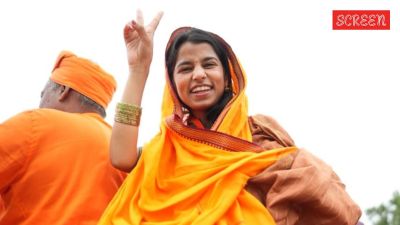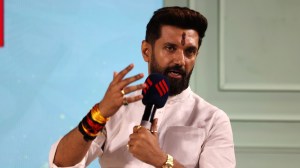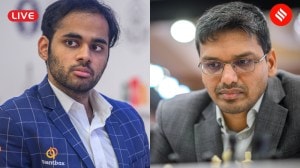SC appointments — Justice Punchhi overrules ministry’s objections
New Delhi, July 15: Differences between the Law Ministry and Chief Justice of the Supreme Court Justice M M Punchhi over the procedure fo...

New Delhi, July 15: Differences between the Law Ministry and Chief Justice of the Supreme Court Justice M M Punchhi over the procedure for selecting judges to the Supreme Court have held up the appointments of six new judges.
Already there are rumblings in the judiciary over Justice Punchhi’s recommendations, since the names have appeared in the media. Chief Justice of the Calcutta High Court Justice P S Mishra resigned yesterday alleging that he was being superseded in the Supreme Court selection process. Chief Justice of the Orissa High Court Justice S N Phukan has also threatened to resign if Justice Punchhi’s recommendations are approved. Both judges feel that they have been unfairly excluded from the selection for the Supreme Court despite their seniority.
The questions raised by the Law Ministry to the CJI’s recommendations concern not just the immediate appointments of the new judges, who will constitute nearly a quarter of the 26-member Supreme Court bench, but are of significance in all futurejudicial appointments.
Should the Chief Justice of India (CJI) make the appointments largely on his own or is he expected to hold widespread consultations with senior members of the bench as per past practice? Is the CJI honour bound to include in the consultations a senior judge who, in all probability, will be the next Chief Justice? Should the rationale of consulting sitting judges in respect of a proposed appointee be interpreted narrowly to mean that only a judge from the appointee’s parent high court is to be consulted?
Chief Justice Punchhi and the Law Ministry have been corresponding on the subject since April but the issue has still not been resolved.
Justice Punchhi’s six nominees for Supreme Court judgeship to fill existing vacancies are: Chief Justice of the Gujarat High Court K Sreedharan; Chief Justice of the Andhra Pradesh High Court U C Bannerjee; Justice R C Lahoti of the Delhi High Court; Chief Justice of the Jammu and Kashmir High Court Bhawani Singh; Justice B N Agarwal of the PatnaHigh Court and Justice K G Balakrishnan of the Gujarat High Court.
In a letter to the President, Chief Justice Phukan has reportedly taken particular exception to the inclusion of the Chief Justice of Jammu and Kashmir Bhawani Singh in the list of appointees. Chief Justice Phukan has pointed out that he was already the Chief Justice of Himachal Pradesh when Singh was his junior as the seniormost puisne judge in the same court.Chief Justice Phukan has suggested that the reasons for selection of Chief Justice Bhawani Singh may not be on merit alone and he has made allegations of judicial misbehaviour against Chief Justice Phukan during the period he was officiating as a judge of the Himachal High Court.
Justice Punchhi, however, has declined to reconsider his proposals for judgeship and accept the ministry’s suggestions to widen the scope of his consultations. The Chief Justice maintains that his recommendations were based strictly in accordance with the decision of the Constitution Bench of the SupremeCourt in Supreme Court Advocates-on-Record Association and others vs. Union of India (1993), the provisions of the Constitution and the terms of Memo of Procedure which are being followed since 1993-94. The Law Minister’s objections to the commendations have no bearing, he avers.
Justice Punchhi has rejected the Law Ministry’s view that the practice of wider consultation of five judges was formalised in a minute signed by five senior judges — including Justice Punchhi — when Justice J S Verma officiated as CJI. Though Justice J S Verma, his predecessor as Chief Justice, might have followed this practice, this was the exception rather than the rule.
The Law Ministry’s case is that Justice Punchhi’s recommendations for judgeship are largely the individual views and opinion of the CJI and not the collective view of the Chief Justice and his two seniormost judges whom he is bound to consult in any event. Neither Justice S C Aggarwal nor Justice A S Anand were apparently consulted before the Chief Justicereplied to the Law Minister on May 31.
Excluding Justice Anand from consultations sets an unhealthy precedent, it is felt, since after Justice G N Ray’s retirement on May 1, Justice Anand became third in order of seniority on the bench. In fact, with the retirement of Justice Punchhi in October this year, Justice Anand will in all probability take over as Chief Justice by virtue of his seniority. The Law Ministry also believes that filling in advance the vacancy which will be created by Justice Aggarwal’s retirement on September 5 is highly unusual.
To consult or not to consult
Law Ministry: Justice Punchhi’s recommendations for judgeship are largely the individual views and opinion of the CJI, not the collective view of the Chief Justice and his two seniormost judges whom he is bound to consult in any event.
Justice Punchhi: Recommendations were in accordance with the Constitution and the decision of the Supreme Court in Supreme Court Advocates-on-Record Association and othersvs. Union of India.


- 01
- 02
- 03
- 04
- 05





























